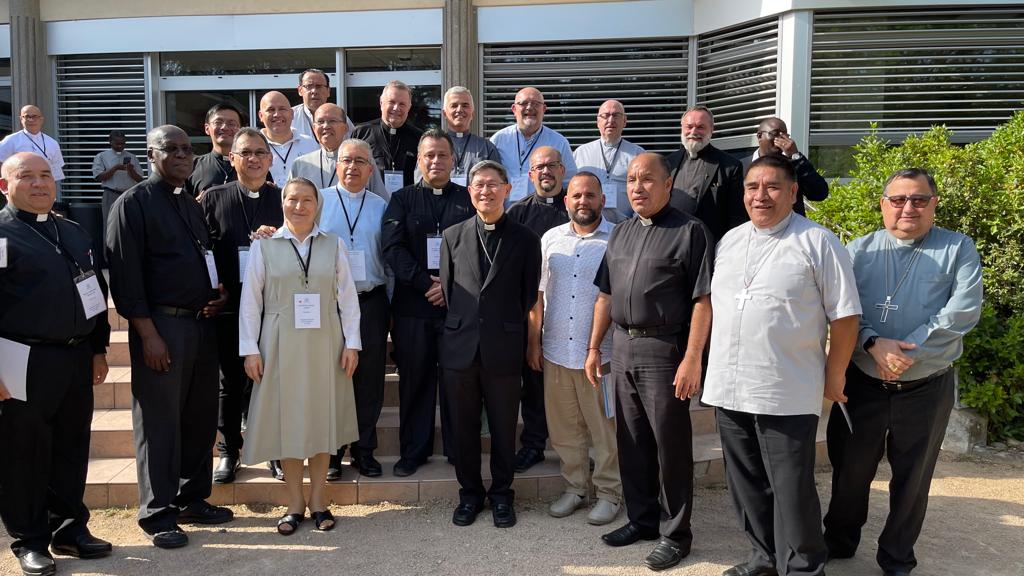We interviewed Father Jafet Peytrequin, current national director of the Pontifical Mission Societies in Costa Rica. He has also recently been appointed coordinator of the Pontifical Mission Societies for the entire American continent. In his heart he has a great desire, which he does not want to keep hidden: "From the point of view of the Church's mission, I would like America to be an ever more outgoing continent. This has become necessary.
The priest explains that one of his next commitments will be to "promote, with renewed vigor, the mission"Ad gentes", specifically involving the particular Churches and supporting the bishops in their task of missionary responsibility".
In your opinion, what is the future of the mission in the countries of the American continent?
The essential thing to remember is that the pilgrim Church is missionary by nature. In essence, mission is not something the Church does, but mission is what the Church does. Therefore, a missionary Church is a living, breathing Church. Giving a new impetus to mission in our continent means to provoke, in the words of St. John Paul II, "a new springtime for the Church". It is a privileged moment to ask ourselves some important questions: What are the challenges that the socio-religious environment poses to mission today? How are we called to mission in these times? How can the particular Churches promote mission more ardently? "Ad gentes"?
What measures could be taken to strengthen this mission?
In the first place, we must reinforce a common language in order to achieve shared concepts. In addition, we must take advantage of and integrate the work done by the missionary centers of the continent and share all its richness. It is important that the Pontifical Missionary Work be integrated into the ordinary pastoral work of our countries and form part of their pastoral plans. I believe that it is fundamental to insist on the universal responsibility that we all have in the mission and to promote missionary cooperation based on joyful animation. It is also important to make the mission visible in the person of the missionaries: we must show a "mission with a face" and not a mere activity. The next American Missionary Congress, to be held in 2024 in Puerto Rico, could help us in this regard.
How are you preparing for this event and what will be the objectives?
The dynamics and the preparation of this congress have been particular. We have tried to return to the synodal essence of the Church, born precisely from the missionary impulse. For this, the local organization leading the congress has been able to count on continental and worldwide support. The objective of this great event will be precisely to promote mission. "Ad gentes", walking together in listening to the Holy Spirit, and being witnesses of faith in Jesus Christ, in the reality of our peoples and to the ends of the earth.
What value have the American Missionary Congresses had for the entire continent?
In the Americas, they have been the result of great common efforts that have passed through different instances, including continental coordination. These congresses have been an indispensable resource to contribute to reflection and local work, but also to offer contributions at the global level, both in terms of animation and missionary cooperation.

What is the role of the continental coordinator of the Pontifical Mission Societies that you have recently assumed?
I believe it is a "bridge" service between the different national directorates of the Pontifical Mission Societies and useful to bring together all the national directors to share efforts, expectations, dreams; to support each other and also to reflect on points of common interest and propose joint initiatives.
It is a matter of generating spaces of communion that in turn promote the mission. Communion is in itself missionary and the mission is for communion, as stated in number 32 of the post-synodal exhortation "Christifideles laici" of St. John Paul II. The continental coordinator is also a facilitator of the meeting between the national directorates and the respective world authorities, as well as between the directorates of other continents.
What have the previous coordinators achieved so far?
In the Americas, the previous coordinators, with their delicate and responsible work, have managed to connect the different national leaderships of the continent in an effective and efficient manner.
What is the current relationship between the Pontifical Mission Societies in each country of the American continent?
Today we have fluid continental communication and cooperation networks that help us to make better use of resources and enrich us with the contributions of each one of us. The integration of the entire continent has brought much wealth and, at the same time, has made us feel committed to the specific challenges of each country in the continent.








